شناسنامه نشریه
صاحب امتیاز: دکتر هادی محمودی نژاد
مدیر مسئول: دکتر علیرضا صادقی
سردبیر: دکتر کورش مومنی
ناشر: انجمن علمی معماری و شهرسازی ایران
ـــــــ تحریریه نشریه براساس الفبا ـــــــــ
دکتر مجید پاسبانی خیاوی
دکتر سید مهدی رضوی خسروشاهی
دکتر مهدی خاک زند
دکتر علی شکور
دکتر علیرضا صادقی
دکتر ریما فیاض
دکتر یوسف گرجی مهلبانی
دکتر محمود گلابچی
دکتر بهزاد مظفری تازه کند
دکتر محسن وفامهر
دکتر پاملا کریمی
دکتر مهیار عارفی
دکتر مونا قندی
ـــــــ تحریریه مشورتی بین المللی ــــــــ
دکتر امجد المساعد
دکتر جانین بنیوس
دکتر مایبریت پدرسون زاری
دکتر نسیم رضوی نیا
دکتر فرزانه سفلایی
دکتر حسام قمری
دکتر وحید وحدت
فرم های نویسندگان ــــــــ
سامانه نویسندگان ـــــــــ
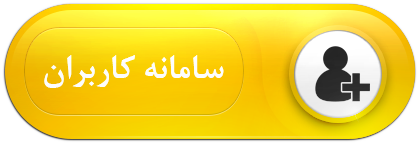
سامانه داوران ـــــــــــــ
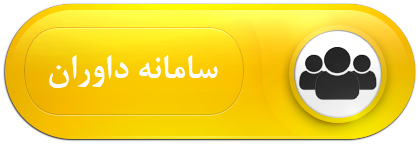
پایگاه ISC ــــــــــــــــــــ
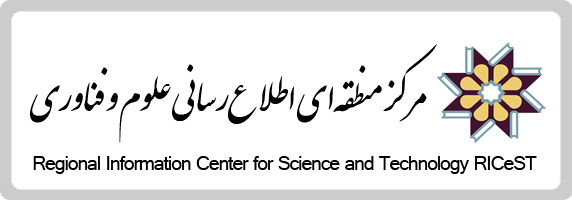
نشریه بوطیقای معماری در مرکز اطلاع رسانی علوم و فناوری وزارت علوم، تحقیقات و فناوری نمایه شد.
نرم افزار مشابهت یاب ــــــــــــــــــ
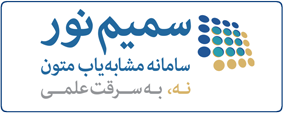
اخلاق نشر ــــــــــــــــــــ

این نشریه بهطور کامل الزامات انتشار دسترسی آزاد را طبق Creative Commons Attribution ۴.۰ International License رعایت میکند.

نمایه Goggle Scholar

:: منشور اخلاقی
این نشریه با احترام به قوانین اخلاق در نشریات تابع قوانین کمیتۀ اخلاق در انتشار(COPE) می باشد و از آییننامه اجرایی قانون پیشگیري و مقابله با تقلب در آثار علمی پیروي می نماید. نشریه بوطیقا از کمیتۀ اخلاق در انتشار (COPE) و مقررات آن متابعت می کند.
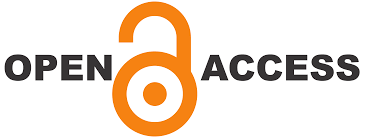
نشریه بوطیقای معماری طبق قوانین دسترسی آزاد، امکان استفاده از تمامی مقالات را فراهم می کند.
منشور اخلاقی نشریه
الف. وظایف نشریه؛ 1. پایبندی به منشور اخلاقی: متولیان نشریات ازجمله مدیرمسئول، سردبیر، اعضای هیئت تحریریه، مدیرداخلی و ویراستار باید ضمن توافق نسبت به قوانین و منشور اخلاقی نشریه، پایبندی عملی خود را نسبت به آن نشان دهند؛ 2. حفظ مالکیت معنوی: قوانین حق تکثیر و اقتباس از سایر آثار ادبی و علمی باید توسط نشریه رعایت شده و حق افراد به هنگام انتشار محفوظ باشد؛ 3. تصمیمگیری منصفانه: تصمیمگیری درباره چاپ مقالات در هر مرحلهای بدون توجه به نژاد، جنسیت، گرایش، باورهای مذهبی، قومی، شهروندی و نویسندگان انجام شود؛ 4. محرمانه بودن اطلاعات: اطلاعات شخصی نویسندگان مقالات برای تمامی افرادی که به آن دسترسی دارند، مانند مدیر مسئول، سردبیر، اعضای هیات تحریریه، مدیر داخلی و اجرایی نشریه و سایر عوامل فعال از جمله داوران، مشاوران، ویراستاران باید کاملاً محرمانه بوده و در هر زمانی از آن محافظت شود؛ 5. ارزیابی مخفی: نشریه یک فرآیند ارزیابی مخفی دوطرفه را دنبال میکند که به موجب آن، نویسندگان، داوران را نمیشناسند و به عکس. نویسندگان باید به محرمانه بودن فرآیند ارزیابی احترام گذاشته و هویت خود را برای داوران آشکار نسازند و به عکس.
ب. وظایف داوران؛ 1. کمک به تصمیمگیری تحریریه: داوران با بررسی کیفی، محتوایی و علمی مقالات، از طریق ارتباط با اعضای تحریریه و یا نویسنده به بهبود و ارتقاء کیفی و محتوایی مقالات کمک میکنند؛ 2. سرعت عمل: داوران باید پس از بررسی اولیه، بلافاصله سردبیر نشریه را در جریان نتیجه داوری ازجمله عدم داوری مقاله به دلیل نبودن موضوع مقاله در حوزه تخصص او، کمبود وقت و یا داوری همراه با تآخیر به دلیل نداشتن فرصت کافی، عدم دسترسی به امکانات کافی و... قرار دهد؛ 3. محرمانه بودن اطلاعات: مقالات و کلیه اطلاعات موجود در آن باید برای داور محرمانه تلقی شده و در حفظ آن بکوشد؛ 4. داوری مستند و منصفانه: داوری مقالات باید بر اساس مستندات علمی و استدلال کافی باشد، منصفانه و به روشنی نقاط قوت و ضعف مقاله بیان شود و از اعلام نظر سلیقهای، شخصی، سیاسی، نژادی و مذهبی در داوری خودداری شود؛ 5. توجه به منابع مقاله: کلیه مطالب و نقل قولهای به کار رفته در منابع باید با ارجاع دهی کامل کتابشناختی در کتابنامه همراه باشد.
ج. وظایف نویسندگان؛ 1. نویسنده مسئول باید با ارسال تعهدنامه کتبی همراه مقاله مبنی بر اینکه، مقاله وی تا اعلام نتیجه (حداکثر شش ماه از زمان تحویل به مجله)، به نشریه دیگری فرستاده نخواهد شد. همچنین مقاله ارسالی در هیچ همایشی (داخلی، ملی یا بینالمللی) ارائه یا در هیچ نشریهای چاپ نشده باشد. بدیهی است مسئولیت حقوقی ارائه یا انتشار مقاله یا نقد در نشریات دیگر، برعهده نویسنده یا نویسندگان آن است؛ 2. در مقالات مشترک با استاد و یا مستخرج از پایاننامه، که با نظارت استاد راهنما نوشته شدهاند، لازم است ضمن جلب نظر ایشان، نام استاد راهنما در مقاله قید گردد؛ 3. مقاله باید حاصل دستاورد مؤلف یا مولفان و دارای اصالت و نوآوری و ماهیت تحلیلی باشد. در صورت استفاده از تحقیقات سایر افراد، با ذکر منبع در مقاله آورده شود و از بهره گیری از آثار دیگران بدون ارجاع خودداری نمایند؛ 4. در نگارش مقاله باید روش پژوهش علمی رعایت شود و از منابع معتبر و اصیل استفاده شود. با ارجاع دهی کامل، ضمن رعایت امانت در نقل مطالب، و حقوق اشخاص، از طرح موضوعات حساس و غیراخلاقی، سلیقهای و شخصی، نژادی و مذهبی و اطلاعات جعلی و یا ترجمه آثار دیگران بدون ذکر عنوان در مقاله خودداری کنند؛ 5. رقت علمی: ثبت مقاله در سامانه نشریات مؤسسه توسط نویسنده مسئول صورت میگیرد. همه نویسندگان مقاله در مورد اصالت اثر مسئول هستند. نشریه موظف به احراز اصالت مقاله است. مصادیق سرقت علمی عبارتند از: 1. ثبت مقاله دیگری به نام خود؛ 2. درج نام نویسندگان و پژوهشگرانی که در مقاله نقشی ندارند؛ 3. کپی برداری یا تکرار بخشهای قابل توجهی از مقاله دیگری به نام خود، هر چند مقاله چاپ نشده باشد؛ 4. طرح نتایج حاصل از پژوهش های دیگران به نام خود؛ 5. چاپ مکرر مقاله توسط نویسنده واحد در چند نشریه؛ 6. استفاده از دادههای نامعتبر یا دستکاری در دادههای پژوهش. در صورت احراز عدم اصالت مقاله و سرقتی بودن آن، نشریه بدون هیچ تساهل و چشمپوشی، با توجه به میزان سرقت علمی، برخوردهای قانونی زیر را پیگیری خواهد کرد: 1. مقاله رد خواهد شد. در صورت چاپ، از روی سایتها برداشته خواهد شد؛ 2. اسامی همه نویسندگان مقاله در سیاهنامه نشریات مؤسسه قرار خواهد گرفت؛ 3. پیگیری قضایی و حقوقی برای نشریه محفوظ خواهد بود.
Publication Ethics
PUBLICATION ETHICS AND PUBLICATION MALPRACTICE STATEMENT
The ethical policy of IJBA is based on the Committee on Publication Ethics (COPE) guidelines and complies with International Committee of IJBA Editorial Board codes of conduct. Readers, authors, reviewers and editors should follow these ethical policies once working with IJBA. The ethical policy of IJBA is liable to determine which of the typical research papers or articles submitted to the journal should be published in the concerned issue. For information on this matter in publishing and ethical guidelines please visit http: publicationethics.org
Duties and Responsibilities of Publishers
- IJBA is committing to ensure that editorial decisions on manuscript submissions are the final.
- IJBA is promising to ensure that the decision on manuscript submissions is only made based on professional judgment and will not be affected by any commercial interests.
- IJBA is committing to maintain the integrity of academic and research records.
- IJBA is monitoring the ethics by Editor-in-Chief, Associate Editors, Editorial Board Members, Reviewers, Authors, and Readers.
- IJBA is always checking the plagiarism and fraudulent data issues involving in the submitted manuscript.
- IJBA is always willing to publish corrections, clarifications and retractions involving its publications as and when needed.
Duties and Responsibilities of Editors
- The Editors of the journal (IJBA) should have the full authority to reject/accept a manuscript.
- The Editors of the journal (IJBA) should maintain the confidentiality of submitted manuscripts under review or until they are published.
- The Editor-in-Chief should take a decision on submitted manuscripts, whether to be published or not with other editors and reviewers
- The Editors of the journal (IJBA) should preserve the anonymity of reviewers.
- The Editors of the journal should disclose and try to avoid any conflict of interest.
- The Editors of the journal should maintain academic integrity and strive to meet the needs of readers and authors.
- The Editors of the journal (IJBA) should be willing to investigate plagiarism and fraudulent data issues and willing to publish corrections, clarifications, retractions, and apologies when needed.
- The Editors of the journal should have the limit themselves only to the intellectual content.
- The Editors of the journal must not disclose any information about submitted manuscripts to anyone other than the corresponding author, reviewers, potential reviewers, other editorial advisers, and the publisher, as appropriate.
- Unpublished materials disclosed in a submitted paper will not be used by the editor or the members of the editorial board for their own research purposes without the author's explicit written consent.
Duties and Responsibilities of Reviewers
- The Reviewers of the journal should assist the Editors in taking the decision for publishing the submitted manuscripts.
- The Reviewers should maintain the confidentiality of manuscripts, which they are invited to review.
- The Reviewers should provide comments in time that will help editors to make decision on the submitted manuscript to be published or not.
- The Reviewers are bound to treat the manuscript received for peer reviewing as confidential, and must not use the information obtained through peer review for personal advantage.
- The Reviewers comments against each invited manuscript should be technical, professional and objective.
- The Reviewers should not review the manuscripts in which they have found conflicts of interest with any of the authors, companies, or institutions.
- The Reviewers should disclose and try to avoid any conflict of interest.
Duties and Responsibilities of Authors
- Manuscripts must be submitted only in English and should be written according to sound grammar and proper terminology.
- Manuscripts must be submitted with the understanding that they have not been published elsewhere (except in the form of an abstract or as part of a published lecture, review, or thesis) and are not currently under consideration by another journal published by or any other publisher.
- The submitting corresponding author is responsible for ensuring that the manuscript article's publication has been approved by all the other coauthors.
- To sustain the peer review system, authors have an obligation to participate in peer review process to evaluate manuscripts from others.
- It is also the authors' responsibility to ensure that the manuscripts emanating from a particular institution are submitted with the approval of the necessary institution.
- It is a condition for submission of a manuscript that the authors permit editing of the paper for readability.
- Authors are requested to clearly identify who provided financial support for the conduct of research and/or preparation of the manuscript and briefly describe the role of the founder/ sponsor in any part of the work.
- A copy right release form must be signed by the corresponding author in case of multiple authorship, prior to the acceptation of the manuscript, by all authors, for publication to be legally responsible towards the Journal ethics and privacy policy.
- Under open access license, authors retain ownership of the copyright for their content, but allow anyone to download, reuse and reprint, modify, distribute, and/or copy the content as long as the original authors and source are cited properly.
- All authors have agreed to allow the corresponding author to serve as the correspondent with the editorial office, to review the edited manuscript and proof.
- When author(s) discovers a significant error or inaccuracy in his/her own published work, it is the author’s obligation to promptly notify the journal editor or publisher to retract or correct the manuscript.
- All authors must know that that the submitted manuscripts under review or published with JUMES are subject to screening using Plagiarism Prevention Software. Plagiarism is a serious violation of publication ethics.
- All authors must ensure that all authors have read the submission final checklist before being submitted to the JUMES.
Principles of Transparency
- Peer review process: IJBA is a double blind peer reviewed electronic and print quarterly publication concerned with all aspects of environmental science and management. This process, as well as any policies related to the journal’s peer review procedures, is clearly described on the journal’s Web site
- Governing Body: IJBA has very strong editorial board, whose members are recognized experts in the subject areas included within the journal’s scope. The full names and affiliations of the journal’s editors is provided on the journal’s Website
- Contact information: Journal is provided the contact information for the editorial office of IJBA;
- Author fees / Access: The Journal database is fully open access and full text of published articles is available for everyone who can get access to the Journal website free of cost. Besides, the authors never pay any charges for submission, article processing and publication.
- Copyright: Journals made clear the type of copyright under which authors work will be published. Upon acceptance of manuscript, authors will be asked to complete a 'Journal Publishing Agreement
- Identification of and dealing with allegations of research misconduct: Editor-in-Chief takes reasonable steps to identify and prevent the publication of papers where research misconduct has occurred, including plagiarism, citation manipulation, and data falsification/fabrication, among others.
- Web site: A journal’s Web site contains that care has been taken to ensure high ethical and professional standards.
- Name of journal: The Journal name of Global Journal of Environmental Science and Management (IJBA) has unique and not be one that is easily confused with another journal
- Conflicts of interest: Authors are requested to evident whether impending conflicts do or do not exist while submitting their articles to IJBA through Conflict of Interest Disclosure
- Publishing schedule: The periodicity at which a journal publishes is clearly indicated.
- Archiving: A journal’s plan for electronic backup and preservation of access to the journal content is clearly indicated
Violation of Publication Ethics
- Plagiarism: Plagiarism is intentionally using someone else’s ideas or other original material as if they are one's own. Copying even one sentence from someone else’s manuscript, or even one of your own that has previously been published, without proper citation is considered by IJBA Journals as plagiarism. All manuscripts under review or published with IJBA are subject to screening using plagiarism prevention software. Thus, plagiarism is a serious violation of publication ethics.
- Data Fabrication and Falsification: Data fabrication and falsification means the researcher did not really carry out the study, but made up data or results and had recorded or reported the fabricated information. Data falsification means the researcher did the experiment, but manipulated, changed, or omitted data or results from the research findings.
- Simultaneous Submission: Simultaneous submission occurs when a manuscript (or substantial sections from a manuscript) is submitted to a journal when it is already under consideration by another journal.
- Duplicate Publication: Duplicate publication occurs when two or more papers, without full cross referencing, share essentially the same hypotheses, data, discussion points, and conclusions.
- Redundant Publications: Redundant publications involve the inappropriate division of study outcomes into several articles, most often consequent to the desire to plump academic vitae.
- Improper Author Contribution or Attribution: All listed authors must have made a significant scientific contribution to the research in the manuscript and approved all its claims. Don’t forget to list everyone who made a significant scientific contribution, including students and laboratory technicians.
- Citation Manipulation: Citation Manipulation is including excessive citations, in the submitted manuscript, that do not contribute to the scholarly content of the article and have been included solely for the purpose of increasing citations to a given author’s work, or to articles published in a particular journal. This leads to misrepresenting the importance of the specific work and journal in which it appears and is thus a form of scientific misconduct.
- Sanctions: In the event that there are documented violations of any of the above mentioned policies in any journal, regardless of whether or not the violations occurred in a journal, the following sanctions will be applied: (i) Immediate rejection of the infringing manuscript, (ii)Immediate rejection of every other manuscript submitted to any journal published by any of the authors of the infringing manuscript, (iii) Prohibition will be imposed for a minimum of 36 months against all of the authors for any new submissions to any journal, either individually or in combination with other authors of the infringing manuscript, and (iv) Prohibition against all of the authors from serving on the Editorial Board of any journal.
Handling Cases of Misconduct
Once IJBA confirms a violation against IJBA publication ethics, IJBA addresses ethical concerns diligently following an issue-specific standard practice as summarized below.
- The first action of the journal Editor is to inform the Editorial Office of IJBA by supplying copies of the relevant material and a draft letter to the corresponding author asking for an explanation in a nonjudgmental manner.
- If the author’s explanation is unacceptable and it seems that serious unethical conduct has taken place, the matter is referred to the Publication Committee via Editorial Office. After deliberation, the Committee will decide whether the case is sufficiently serious to warrant a ban on future submissions.
- If the infraction is less severe, the Editor, upon the advice of the Publication Committee, sends the author a letter of reprimand and reminds the author of IJBA publication policies; if the manuscript has been published, the Editor may request the author to publish an apology in the journal to correct the record.
- Notification will be sent to corresponding author and any work by the author responsible for the violation or any work these persons coauthored that is under review by IJBA journal will be rejected immediately.
- The authors are prohibited from serving on IJBA editorial board and serving as a reviewer for IJBA Journal. IJBA reserves the right to take more actions.
- In extreme cases, notifications will be sent to the affiliations of the authors and the authors are prohibited from submitting their work to IJBA for 5 years.
- In serious cases of fraud that result in retraction of the article, a retraction notice will be published in the journal and will be linked to the article in the online version. The online version will also be marked “retracted” with the retraction date.
نشریه
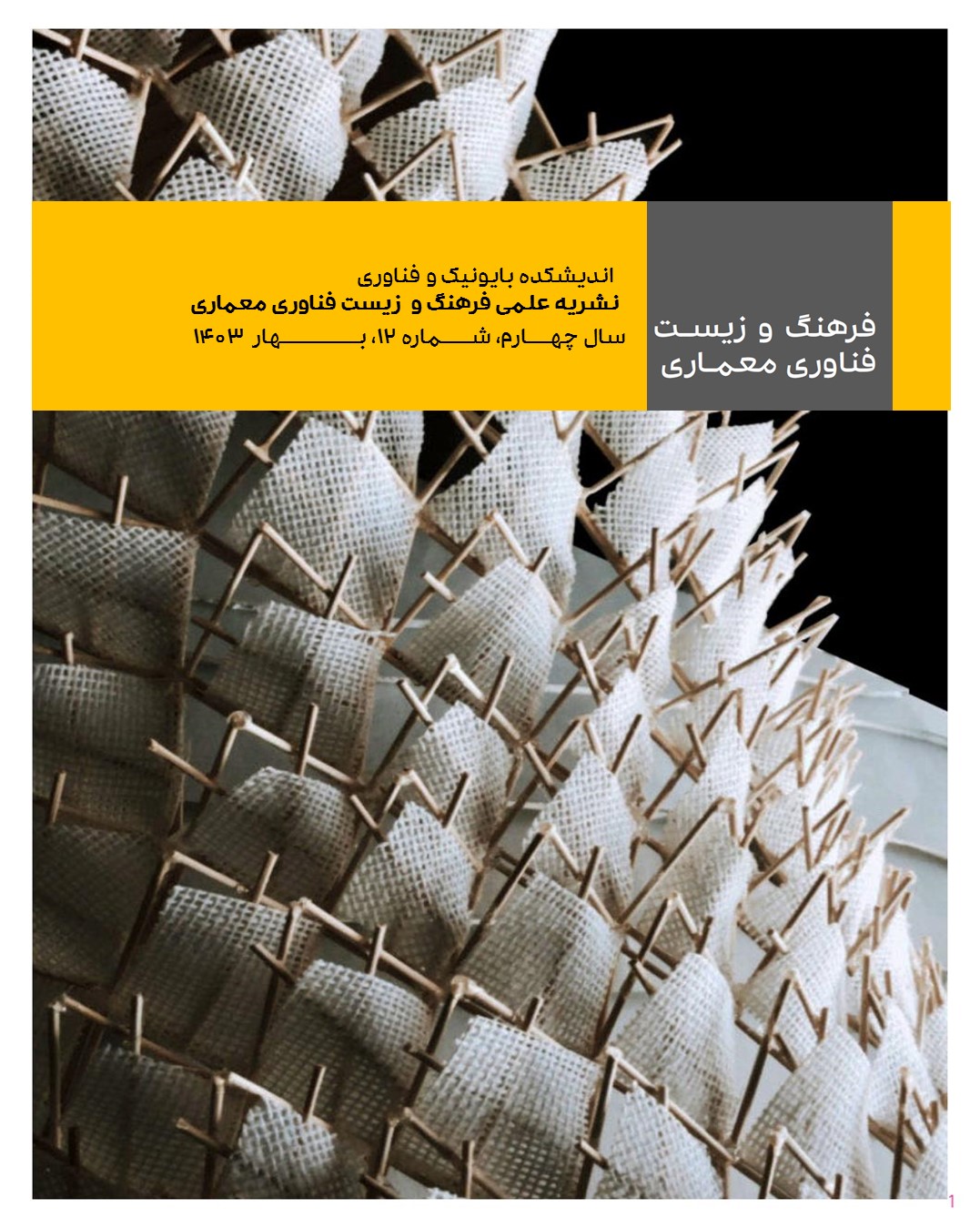
شماره های فصلنامه
بهار 1403 دوره چهارم، شماره 12 ،
- بهار 1403
- زمستان 1402
- پاییز 1402
- تابستان 1402
- بهار 1402
- زمستان 1401
- پاییز 1401
- تابستان 1401
- بهار 1401
- زمستان 1400
- پاییز 1400
- تابستان 1400
گزارش آماری نشریۀ
|
تعداد دورهها |
4 |
|
تعداد شمارهها |
12 |
|
تعداد مقالات منتشرشده |
133 |
|
تعداد نویسندگان |
231 |
|
تعداد مشاهدۀ مقاله |
343839 |
|
تعداد دریافت فایل مقاله |
21324 |
|
نسبت مشاهده بر مقاله |
168 |
|
نسبت دریافت فایل بر مقاله |
165.75 |
|
تعداد پایگاههای نمایهکننده |
17 |
|
تعداد مقالات ارسالشده |
401 |
|
تعداد مقالات ردشده |
250 |
|
تعداد مقالات دردستبررسی |
18 |
|
بازه زمانی بررسی اولیه |
4 |
صاحب امتیاز
پایگاه های نمایه ساز
آمار بازدید
© کلیه حقوق این وب سایت محفوظ می باشد .
طراحی و پیاده سازی شده توسط : فرازنت ( پورتال آنلاین مدیریت و داوری مجله ) ویرایش 7.1